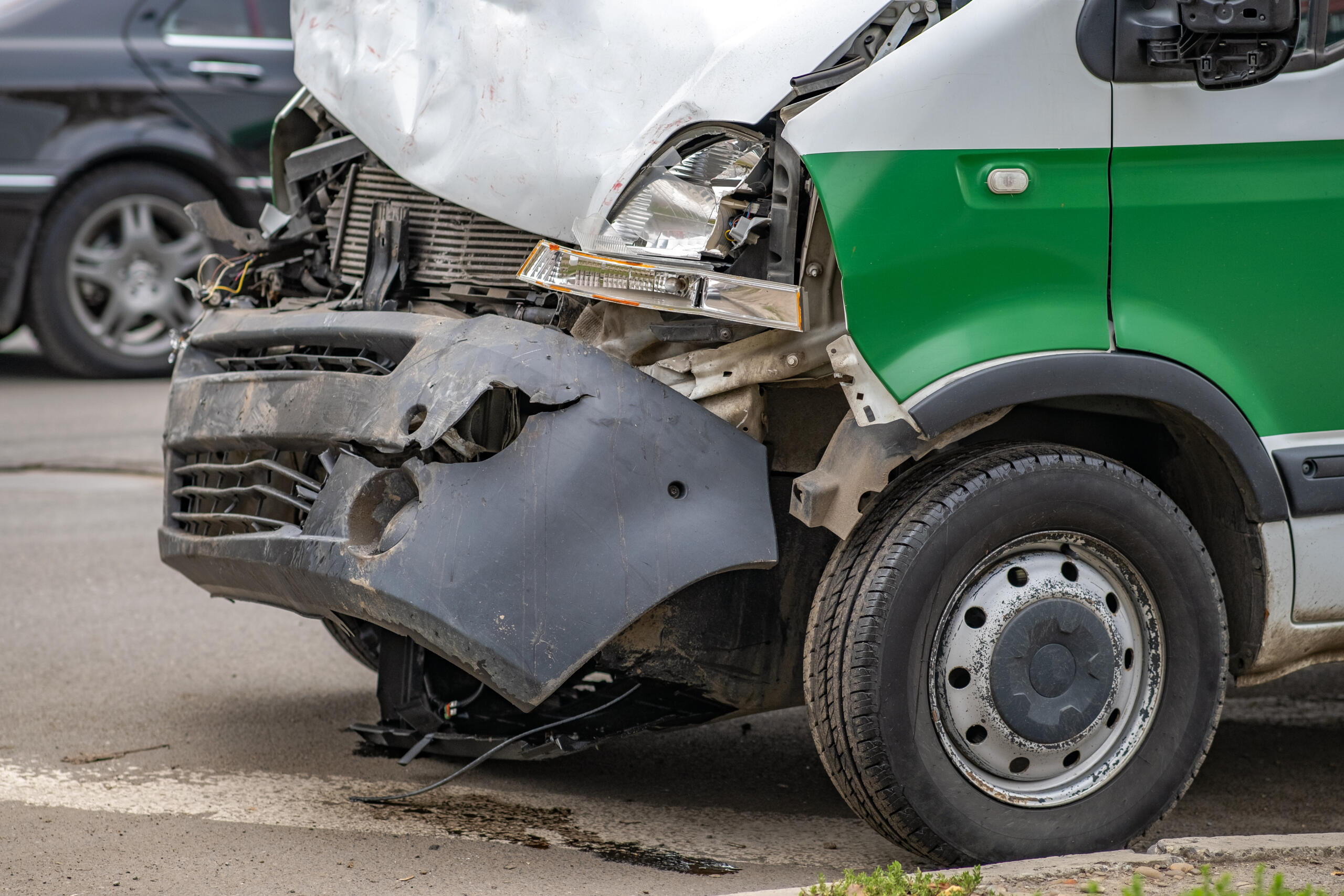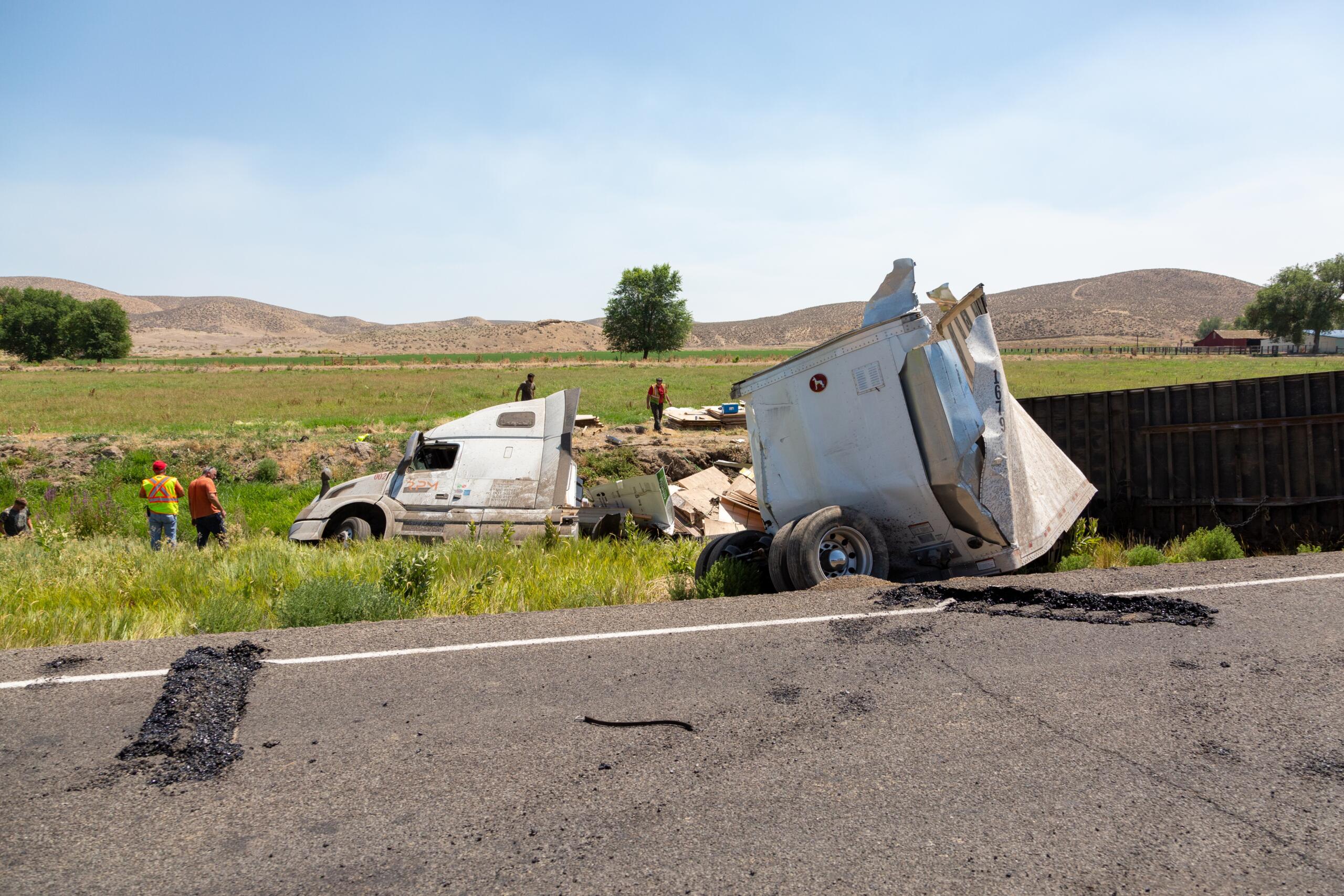
Commercial vehicle accidents often involve larger vehicles like trucks, buses, and delivery vans. These accidents can cause significant injuries due to the size and weight of the vehicles involved. Understanding the unique aspects of these accidents is crucial when pursuing compensation.
Types of Commercial Vehicles Involved
Commercial vehicles range from large trucks and trailers to delivery vans and buses. Each type of vehicle presents unique risks and potential for damage due to their size and operational characteristics. Understanding the type of vehicle involved can help in assessing liability and the specific dynamics of the accident.
Common Causes of Accidents
These accidents can result from various factors, including driver fatigue, improper maintenance, and poor weather conditions. It’s essential to identify the cause of the accident as it can influence liability. An investigation into these causes can uncover critical evidence for your case.
Potential Impact on Victims
The injuries resulting from a commercial vehicle accident can be severe, affecting your ability to work and enjoy life as you did before the accident. Injuries might include long-term physical impairments or psychological trauma, necessitating comprehensive compensation. This underscores the importance of securing fair compensation to cover not just immediate medical expenses but long-term care and lifestyle adjustments.
Steps to Take Immediately After the Accident
What you do immediately following a commercial vehicle accident can make a significant difference in your case. Here are key steps to take:
1. Seek Medical Attention
Your health is the top priority. Even if you don’t feel immediate pain, some injuries may not be apparent right away. A medical professional can assess your condition and document any injuries, which is crucial for your case. Prompt medical attention also creates a record that links your injuries directly to the accident, which can be vital evidence.
2. Document the Scene
If possible, take photos of the accident scene, the vehicles involved, and any visible injuries. Note the weather conditions, road signs, and any potential witnesses. This documentation can serve as valuable evidence later on. Additionally, gather contact information from witnesses, as their testimonies can support your account of the accident.
3. Report the Accident
Notify the police about the accident and ensure that an official report is filed. This report can be an essential piece of evidence when dealing with insurance companies or in court. The police report often includes crucial details such as witness statements and officer observations, which can add credibility to your claims.
4. Notify Your Insurance Company
Inform your insurance company about the accident as soon as possible. Providing them with accurate details can help in processing your claim. However, be cautious with the information you share, as insurance companies might use your statements against you.
5. Avoid Admitting Fault
In the immediate aftermath, it’s crucial to avoid making statements that could be interpreted as admitting fault. Even a simple apology could be misconstrued. Focus on gathering facts and let the investigation determine liability.
Legal Considerations
Navigating the legal complexities of a commercial vehicle accident requires understanding your rights and the legal processes involved.
6. Understand Liability
Determining liability in a commercial vehicle accident can be complex. Liability might not only rest with the driver but also with the company that owns the vehicle, the vehicle manufacturer, or even a third-party maintenance provider. An experienced attorney can help uncover all liable parties. Understanding the web of potential liability can significantly impact the compensation you might receive.
7. Statute of Limitations
Each state has a statute of limitations that dictates how long you have to file a lawsuit after an accident. Missing this deadline can bar you from receiving compensation. Familiarize yourself with these timelines and work with your attorney to ensure timely filing.
8. Comparative Negligence
Some states operate under comparative negligence laws, which can reduce your compensation if you are found partially at fault. Understanding how these laws might apply to your case is crucial. Your attorney can help build a case that minimizes your perceived liability.
9. Understanding Insurance Policies
Commercial vehicles often carry different insurance policies than regular passenger vehicles. These policies might have higher coverage limits, but understanding their nuances is essential. Your attorney can help interpret these policies to ensure you are seeking the appropriate compensation.
10. Hire an Experienced Attorney
Engaging a lawyer who specializes in commercial vehicle accidents can be a game-changer. They can guide you through the legal process, negotiate with insurance companies, and ensure you receive the maximum compensation possible. An attorney’s expertise can also be invaluable in court, should your case go to trial.
Building a Strong Case
A robust case requires thorough preparation and evidence gathering. Here’s how you can strengthen your case:
11. Collect Evidence
Besides photos and police reports, gather medical records, witness statements, and any correspondence with insurance companies. This evidence will support your claims and counter any defenses from the opposing party. Additionally, any video footage from dash cams or nearby surveillance cameras can provide crucial evidence.
12. Keep a Detailed Record
Maintain a record of all expenses related to the accident, including medical bills, repair costs, and any other financial losses. Also, document how the accident has affected your daily life, such as missed work or changes in lifestyle. Personal diaries detailing your physical and emotional recovery can also be persuasive in court.
13. Expert Testimonies
Consider involving expert witnesses, such as accident reconstruction specialists or medical experts, to provide professional insights into your case. These testimonies can offer objective evidence to support your claims and provide clarity on complex issues.
14. Review Past Cases
Research similar cases to understand typical compensation amounts and legal strategies that were successful. This can provide a benchmark for your expectations and help tailor your approach. Your attorney can also use this information to negotiate more effectively.
15. Monitor Your Social Media
Be cautious about what you post on social media, as it can be used against you in your case. Insurance companies might scrutinize your posts for evidence that contradicts your claims of injury or distress. It’s best to limit your online activity until your case is resolved.
Negotiating with Insurance Companies
Insurance companies aim to minimize their payouts. Here’s how you can negotiate effectively:
16. Be Cautious with Initial Offers
Insurance companies often present low initial offers. It’s crucial not to accept the first offer without consulting your attorney. A lawyer can assess the offer’s fairness based on your case’s specifics. Understanding the full extent of your injuries and losses is essential before accepting any settlement.
17. Present a Strong Demand Letter
Your attorney can draft a demand letter outlining your injuries, financial losses, and the compensation you’re seeking. A well-prepared demand letter can set the tone for negotiations and demonstrate the seriousness of your claim. This document should be comprehensive, detailing all aspects of your case and justifying the compensation amount sought.
18. Understand Insurance Tactics
Insurance companies often employ tactics to reduce payouts, such as delaying proceedings or questioning the severity of your injuries. Being aware of these tactics can help you and your attorney prepare and counteract them effectively.
19. Maintain Professionalism
Throughout negotiations, it’s important to remain professional and composed. Emotional reactions can be detrimental to your case. Let your attorney handle communications with the insurance company to ensure all interactions are strategic.
20. Be Prepared to Compromise
While it’s essential to aim for full compensation, be prepared for some level of compromise. Your attorney can help determine what a fair settlement would look like and guide you in making informed decisions.
When to Consider Going to Court
If negotiations stall, taking your case to court might be necessary. Here’s what you need to know:
21. Prepare for Trial
If a fair settlement cannot be reached, your case may go to trial. Your attorney will prepare you for what to expect and present your case effectively in court. Trials can be lengthy, but they might yield a more substantial compensation. Being prepared mentally and logistically can ease the stress of a court proceeding.
22. Understand the Potential Outcomes
While going to court can result in higher compensation, it also involves risks and uncertainties. Your attorney will help you weigh the pros and cons of pursuing a court case versus settling. Being informed about possible outcomes can aid in making strategic decisions.
23. Jury Selection and Court Dynamics
Understanding the jury selection process and courtroom dynamics can help in setting realistic expectations for your trial. Your attorney will guide you through this process, ensuring you are well-prepared for each stage.
24. Post-Trial Processes
Even after a trial, there may be additional steps, such as appeals or enforcing the judgment. Being aware of these processes ensures you are fully prepared for all eventualities. Your attorney will assist you in navigating these post-trial phases.
25. Emotional Preparedness
Going to court can be emotionally taxing. Prepare yourself for the stress and time commitment involved. Having a strong support network can help you manage the emotional challenges of a trial.
Conclusion
Maximizing your compensation in a commercial vehicle accident case involves taking immediate actions, understanding the legal landscape, and effectively negotiating with insurance companies. By following these steps and working with a skilled attorney, you can secure the compensation you deserve.
Remember, every case is unique, so seek personalized advice from your attorney. With the right strategy and legal support, you can navigate this challenging time and focus on your recovery.
For more information or to discuss your case, contact 612-Injured today. Our experienced team is here to help you through every step of the process. Whether you are just beginning to explore your options or need assistance in ongoing negotiations, our expertise can be the key to ensuring your rights are protected and your compensation is maximized.
Contact 612-Injured: Minnesota’s Personal Injury Attorneys
If you or a loved one has been involved in a commercial vehicle accident, don’t navigate this complex process alone. Contact 612-Injured today for a free consultation. Our experienced team of personal injury attorneys is dedicated to helping you secure the compensation you deserve. We understand the challenges you face and are here to guide you every step of the way.
Call us now to discuss your case and explore your options. Your recovery is our priority!


